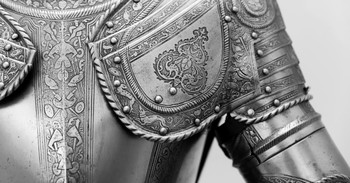
What will happen to our Christians? They are so few in numbers and know so little about Christ. It was April, 1937. Italian soldiers had come to take all Protestant missionaries out of the Wallamo region of Ethiopia. All the missionaries could do was lift their hearts in prayer as Italian soldiers forced them away from their Ethiopian converts.
A year earlier, on this day, May 5, 1936, Addis Ababa, the capital of Ethiopia, had fallen to Mussolini's invading armies. Emperor Haile Selassie fled. Barefoot Ethiopian soldiers resisted bravely against tanks and mustard gas, but the Italians won.
Soon the victors came for the missionaries, who left just 48 baptized Christians behind them in Wallamo. These had the Gospel of Mark and a few other passages of scripture in their language, but few knew enough to read even that. Several of the Christians already knew first hand what persecution was like, having experienced it from heathen neighbors. The missionaries prayed constantly.
On this day, May 5, 1941, five years to the day that he had left Ethiopia, Haile Selassie returned. The missionaries returned to the capital, too. What would they find?
Reports reached them from Wallamo. Not only had the church survived, it had grown. Not only had it grown, it had grown more than 200 times greater. The 48 believers had become 10,000!
The missionaries credited the Holy Spirit who guided the suffering Christians. Cheerful and forgiving under enemy savagery, they proved that their faith was genuine. They sang songs with encouraging words: "If we have little trouble here, we will have little reward there. We will reign."
Beaten, tortured, killed, they stood fast, heroes of God. They even sang when told to tear their church down--and cheerfully obeyed. One of their leaders, Toro, was thrown face down in the mud of a jail cell and beaten with a hippo-hide whip. "Where is the God who can deliver you out of our hands?" he was asked.
"My God is able to deliver me--if he chooses--and if not, He has promised to take me to heaven to be with Him there." Soon afterward, a terrible storm blew off the prison roof and melted its mud bricks. The guards were terrified. They pleaded with Toro to pray for them, and then released him! But other Christians died of cold at night in unheated cells.
The Protestants perceived the persecution as motivated not by politics, but by differences in religious faith, since Catholic priests promised them freedom if only they would kiss the crucifixes held up to them. To the Wallamo, this seemed like a return to the idolatry they had recently left, and they refused freedom at that price. Their faith and courage attracted others to Christ.
The returning missionaries rejoiced. Their main work now consisted of clearing up a few misunderstandings of scripture, translating the Bible, educating the converts and adding structure to a national church that was struggling to organize itself.
Bibliography:
- Davis, Raymond. Fire on the Mountains. Grand Rapids, Michigan: 1974.
- Various encyclopedia and internet articles about Ethiopia, Mussolini and Haile Selassie.


